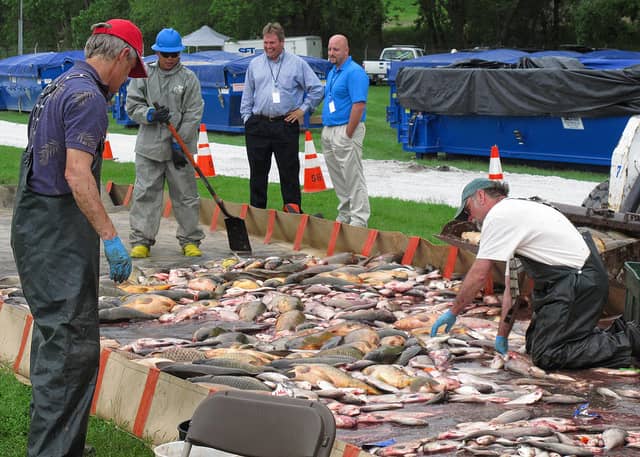Bill Introduced to Prevent Importation of Harmful Non-native Animals and Diseases
OutdoorHub Reporters 05.31.12

At this time, the U.S. Fish and Wildlife Service can only react to threats to native animal and plant species already present on United States soil. To give the USFWS the authority to stop harmful invaders from ever being imported to the U.S. in the first place, the Invasive Fish and Wildlife Prevention Act of 2012 (H.R. 5864) was introduced May 30.
The bill was introduced by Rep. Louise Slaughter (D-NY) and a bipartisan group of nine original co-sponsors from six states.
From the press release,
This legislation would strengthen the U.S. Fish and Wildlife Service’s (FWS) ability to designate animals as “injurious,” which cannot be imported or shipped between states without a permit. The legislation would empower the FWS to become proactive rather than reactive in its listing and restriction process, and stop harmful invasive fish and wildlife from ever arriving at U.S. shores.
Especially fresh on the minds of legislatures are Asian carp which have already cost taxpayers $204 million in damage control, Burmese python now menacing the Florida Everglades, and venomous red lionfish now invading the Atlantic Ocean and Gulf of Mexico.
The bill would implement a new regulatory process to more rapidly evaluate risks of importing non-native wildlife, and restrict those species that pose serious risks before they are imported to the United States. Current legislation regulating animal imports does not require that animals being imported first be screened for invasiveness, for diseases they might carry, or for the risks they pose to human or wildlife health.
This proposed legislation will create a new FWS screening system within six years, while immediately giving the agency greater flexibility and authority to make science-based decisions regarding prohibiting or restricting live animals in trade. The FWS also would get emergency authority to respond to the animal and human health threats posed by the live animal trade, a known potential vector for pathogens such as the West Nile and monkeypox viruses.
The United States is a leading import market which receives hundreds of millions of non-native animals every year. Currently, it takes an average of four years for the government to stop their importation. Senator Slaughter’s bill was introduced following years of unsuccessful bills that have attempted to modernize what many see as a flawed regulatory system.
View the whole press release on PR Newswire.com.

